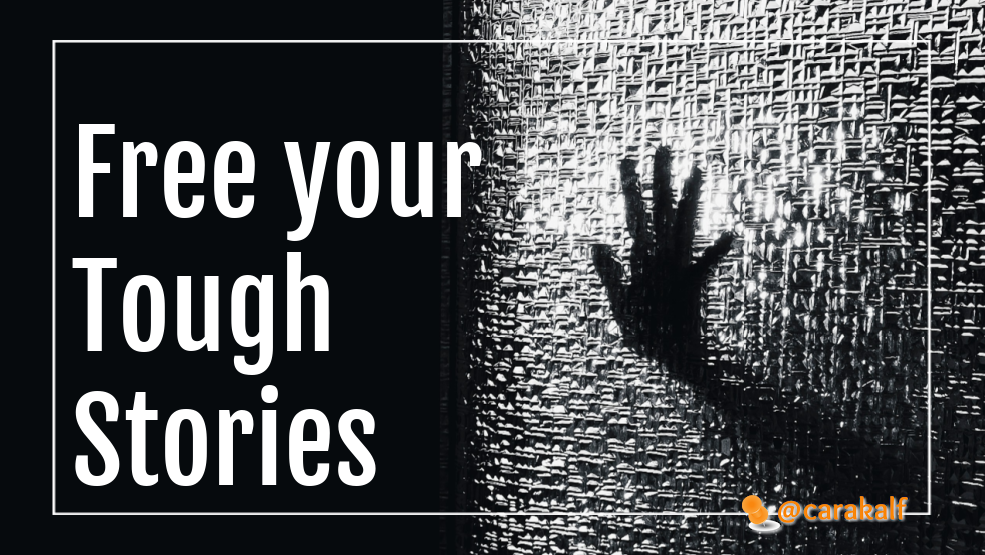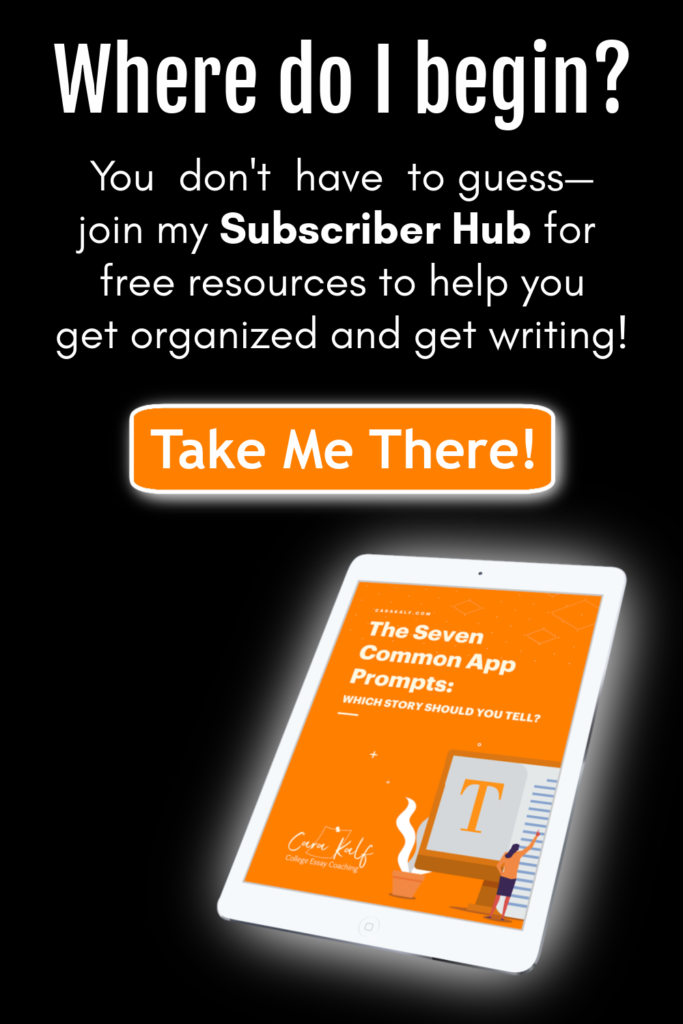One very real possibility is that in trying to be truthful, and tell about something that was challenging, growing, and important to you, you are becoming vulnerable in a way that triggers your editor. Understanding how the editor works—and why—will make this part of the process so much more successful for you.
Meet Your Editor
Your editor is the voice in your head that comments on your writing. Like an older sibling, he both criticizes and tries to protect you. (I always refer to the editor as “he” because I picture him like an old-fashioned newspaper editor—crotchety and perfectionist, but secretly good at heart. See the story behind the famous editorial “Yes, Virginia, There Is a Santa Clause.”)
You might recognize your editor from his standard opening: “Don’t write that!! That’s STUPID.” Contrary to what he may have told you, you aren’t alone in hearing that voice. That internal criticism is pretty standard for all writers—not just “bad” writers or student writers.
But the editor is also ready with a different warning: “Don’t write that! That’s EMBARRASSING!” Growth experiences, by their nature, often involve failure or other stories you might not normally choose to tell. If you so much as ask your creative mind to provide some of those memories (as you would do in brainstorming), it’s highly likely that the editor is going to throw himself in front of the door to your mind, desperately hoping you’ll think there’s nothing there and move along.
How can you tell if your writer’s block is the editor’s work? Well—it basically always is. The editor is most effective at this part of the job when you don’t even know he’s there. Most writers aren’t consciously avoiding the difficult subjects. You truly believe you have nothing to say, or nothing interesting, no story worth telling. But if you can’t think of anything to say, your editor is involved.
You have many stories in your life. Some are exciting, some are dull, and most are in between. If you cannot think of a single one, even a dull one, then it means the editor is proactively filtering. He might be embarrassed by how dull your stories are, or how personal, or how you looked as a result of the experience, or how he doesn’t think you’ve grown enough since. A true story might feel simply too vulnerable or exposed. Of course, you don’t have to write something that’s scary. But “scary” is relative, and usually your editor is overly sensitive.
Can I Write About That?
Anne Lamott wrote, “Every single thing that happened to you is yours, and you get to tell it.” So many students worry that writing about their tragedy sounds self-pitying, writing about their triumph sounds self-congratulatory, and writing about their involvement in athletics, mission work, or you-name-it sounds too cliché.
Well, it’s your life. And you get to tell it. Whether it sounds self-pitying or self-congratulatory is up to you and how you choose to tell it. But it’s the only life story you’ve got.
I have been doing this work for more than ten years. In that time, I can remember one clear example of a story that was just plain inappropriate for a college essay.* That’s it. ONE. Occasionally students consider topics I think might be less than ideal, and I will tell them honestly what my concerns are—but only once has a student chosen a topic I had to talk him out of. That means that almost certainly, whatever you’re avoiding telling is not actually that bad. If you really don’t feel comfortable talking about it—don’t. But in all likelihood, there’s a story in there that’s not so bad, not so embarrassing, not really inappropriate … and you might actually want to tell it, if you just let your editor calm down.
(This doesn’t mean that there aren’t inappropriate topics, just that you can probably trust your intuition on what those topics are. As a general rule, if it involves sex or drugs—don’t write it. If you can imagine telling the story face-to-face to a trusted teacher, it’s probably appropriate.)
But Should You Tell It?
At the same time, it’s important to remember that just because something is tough does not automatically make it a good story. Many people have lived through difficult events, from divorce to cancer. If it was formative for you, don’t worry that it wasn’t unique. But choose it because it was important to you, not because you think it’s the only thing about you that’s interesting.
Students who have not lived through great difficulties sometimes worry that their essays are too dull—that their lives have been too easy. Students who have lived through great difficulties worry that writing their truth will come across as asking for pity. Either way, “you are not the product of your circumstances—you are the product of your decisions” (that’s Stephen Covey, author of The Seven Habits of Highly Effective People). Whether your life has been “lucky” or “unlucky,” your essay should not be focusing on what life has handed to you, but on what you have done with it.
So How Do I Start?
The “secret” to getting started here is as simple as becoming aware of your editor’s trick. Sometimes knowin that your editor might be deliberately sabotaging you is enough to unblock the door—at least enough for a peek into your potential ideas. If it’s not enough, and you’re still feeling completely blocked, then you might need to consciously focus your brainstorming in a direction that’s less triggering. Actively search for moments of triumph or joy, and if that, too, fails, try simple contentment. Don’t pressure yourself to find a story that is simultaneously thrilling for your reader and yet not at all stressful for you. The story you are ready to tell—whatever it is—will be enough.
(Photo by Kasper Rasmussen on Unsplash)


